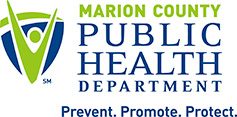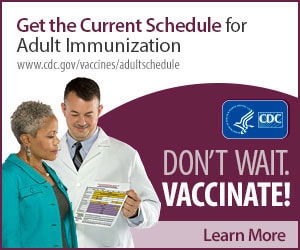You never outgrow the need for vaccines. The specific immunizations you need as an older adult are determined by factors such as your health status, previous immunizations, and international travel plans. Adult immunization recommendations offer protection against a variety of serious illnesses including the following:
- Tdap Vaccine: Protects against tetanus, diphtheria, and pertussis (whooping cough). Not only are you protecting yourself, but any babies and children you might be around!
- Shingles Vaccine: Shingles vaccine is recommended for all people over the age of 50. the Food and Drug Administration in 2017 approved Shingrix as the preferred alternative to Zostavax, which was approved in 2006. Both vaccines are approved for adults age 50 and older for the prevention of shingles and related complications, whether you’ve already had shingles or not. More information about shingles vaccines: Shingrix, Zostavax
- Pneumococcal Vaccine: CDC recommends 2 pneumococcal vaccines for all adults 65 years or older. You should receive a dose of PCV13 first, followed by a dose of PPSV23, at least 1 year later. If you already received any doses of PPSV23, get the dose of PCV13 at least 1 year after the most recent PPSV23 dose. More information about pneumococcal vaccines.
- Seasonal Flu Vaccine: Everyone 6 months of age and older should get a flu shot every year. This vaccine contains several strains of protection and changes every year. This is why it is so important to receive one yearly.
The specific immunizations you need as an adult are determined by factors such as your age, lifestyle, high-risk conditions, type and locations of travel, and previous immunizations. Take this quiz to see which vaccines you need!
Vaccine Safety
Research has demonstrated that vaccines are both safe and effective. Vaccines are held to the highest standard of safety and the United States currently has the safest, most effective vaccine supply in history. There is no scientific evidence that immunizations cause autism or that giving multiple shots can harm or “overload” the immune system. Side effects can occur with any medicine, including vaccines. Slight discomfort (such as pain at the injection site) is a common, non-serious side effect. Serious reactions to vaccines are very rare. Anyone who receives a vaccine shot should be informed about both the benefits and risks of vaccination. More information on vaccine safety is available at: www.cdc.gov/vaccinesafety/index.html
For more information, visit CDC.gov/vaccinate, Children’s Hospital of Philadelphia and Immunization Action Coalition





